
Beginner one-piece
.pdf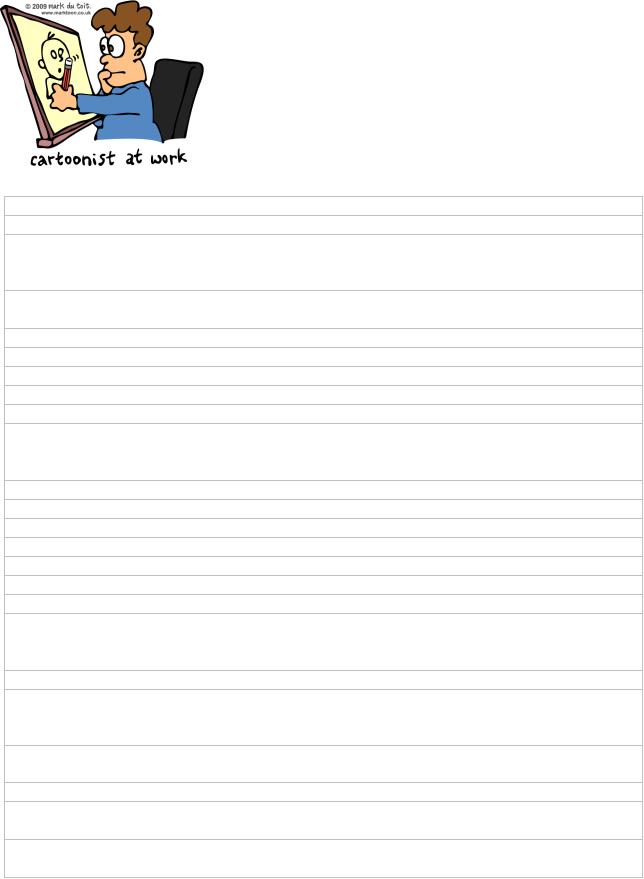
LESSON 2
Appearance and Character
The best mirror is an old friend.
A little man often cast a long shadow.
Don’t judge men by their appearance.
Nothing shows a man’s character more than what he laughs at.
Character is the result of two things: mental attitude and the way
|
|
|
we spend our time. |
TOPICAL VOCABULARY |
|
|
|
1. The human body |
1Людське. тіло |
|
|
attractive / unattractive |
приваблнепр/ ивабливий |
||
good-looking / pleasant-looking / beautiful / |
приємноїзовнішностікрасивий/ чарівний/ / |
||
charming / lovely / pretty |
милийгарненький/ |
|
|
common / plain / usual / ordinary |
звичайнийпростий/ |
||
ugly / handsome |
негарний (потворний) / гарнийпро( |
||
|
чоловіків) |
|
|
height / shape |
зрістстатура/ форма( ) |
|
|
tall / short / middle-sized (medium / average) |
високийнизький/ середнього/ зросту |
|
|
to look like |
виглядати,бутисхож м |
прохарактер )? |
|
What does he look like? / What is he like? |
Яквінвиглядає?Який/він( |
||
2. Build (frame) / figure |
2Тулуб. фігура/ |
|
|
large / heavy / powerful / stocky / fat / stout |
великийважкий/ могутній/ коренастий/ / |
||
|
товстийповний/ |
|
|
small / slim (lean) / slender /graceful |
маленькийхудий/ стрункий/ граці/ ний |
||
well-made / clumsy figure |
добрескладенийнезграбна/ фігура |
|
|
3. Parts of the body |
3.Частинитіла |
|
|
head / neck / forehead / mouth / jaw / ears |
головашия/ чоло/ рот/ щелепа/ / |
вуха |
|
moustache / beard |
вусаборода/ |
|
|
broad / narrow shoulders |
широківузькі/ плечі |
|
|
chest / waist |
груднакліткаталія/ |
|
|
leg / foot (pl. feet) |
ногавід(стегнадоп’яти)стопа/ ( |
мн.стопи) |
|
arm / hand / elbow / palm |
рука/ кисть( іпа)л/ікьцід/ отьл |
оня |
|
fingers: thumb / index (forefinger) / middle / |
пальці: |
великийпалецьвказівний/ середній/ |
|
ring / little |
/безіменмізи/ нецьий |
|
|
toe / nail |
палецьнанозініготь/ |
|
|
hair (color): red / fair / blond / chestnut / |
волосся (колір):рудесвітле/ блондин/ (ка) / |
||
grey / black (dark) / brown / brunette |
каштановесиве/ чорне/ темне( )шатен/(ка) / |
|
|
|
брюнет(ка) |
|
|
hair (type): thin / thick / straight / short / |
волосся (тип):тонкетовсте/ пряме/ коротке/ |
||
long / wavy / curly / curled / bold-headed |
/ довгехвилясте/ кучеряве/ лисий/ |
|
|
hair-cut / hair-do (hair-style) / fringe / plait |
стрижказа/ ч/ іскаубчиккоса/ |
|
|
face: oval / square / long / round / wrinkled / |
обличчя:овальнеквадратне/ довге/ кругле/ |
||
freckled / scar / mole |
/узморшкаху/ |
ластовинніш/ р/ одимкаам |
|
nose: straight / aquiline / hooked (turned up) |
ніс:прямийорл/ к/ нийрпатийкурносий/ |
||
lips: full (thick) / thin / well-cut |
губи:повтонкі/ чітокреслені/ |
||
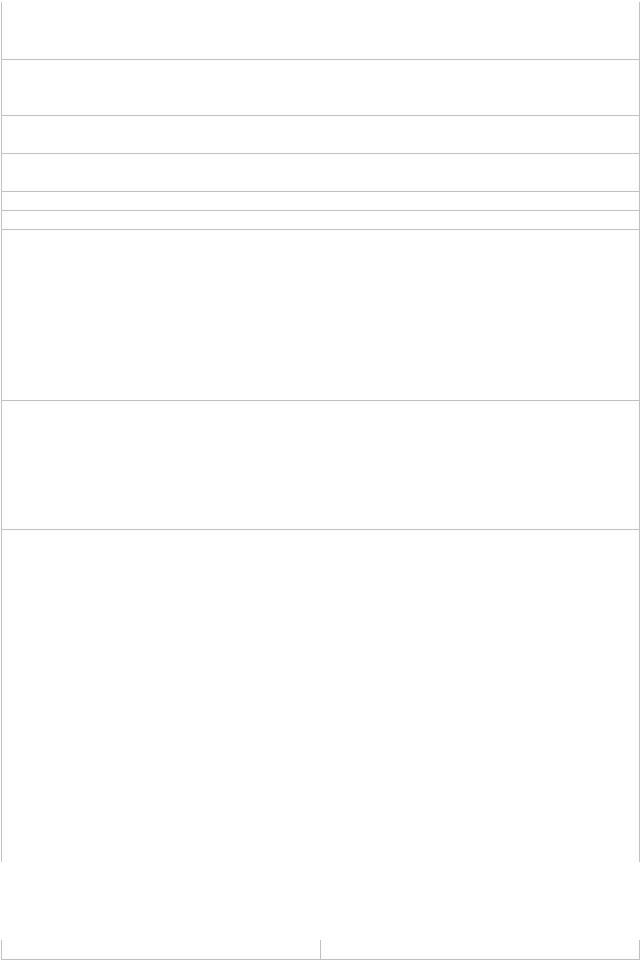
teeth: (un)even / perfect / false teeth |
зуби:не)рівн( |
|
іідеальні/ вставні/ |
|
|
cheeks: clean-shaven / stubby / with dimples |
щоки:поголенінеголені/ з/ямочками |
|
|||
chin: double / massive / pointed |
підборіддя: подвійнемасивне/ загострене/ |
|
|||
eyes: blue / brown / hazel / grey / bulging / |
очі:блакитнітемно/ |
-карісвітло/ |
-карісірі/ / |
||
cross-eyed / short-sighted / long-sighted |
витрішкуватікосоокий/ короткозорий/ / |
|
|||
|
далекозорий |
|
|
||
eyebrows: bushy / arched / thin |
брови:густідуг/ тонкі/ ю |
|
|||
to raise / frown(ed) one’s brows |
дивуватхмур/ бровисяти |
|
|
||
eyelashes / eyelids |
вії/ повіки |
|
|
|
|
4. Traits of character |
4.Рисихарактер |
у |
|
||
behavior / to behave oneself |
поведінкаповодитися/ |
|
|||
self-esteem / manners |
самооцінкаманери/ |
|
|
|
|
sleepyhead / sweet-tooth / chatter-box / big |
соньколасун/ балаку/ |
|
нбазік/ хв/ астунло |
||
mouth / big-head |
|
|
|
|
|
to lose (lost; lost) one’s temper |
вийтизсебе |
|
|
|
|
emotional states: |
емоційстаний |
|
: |
|
|
1) positive: |
1)позитивний |
: |
|
||
cheerful (merry) / calm / serious / easy-going |
вес/елийпокійнийсерйозний/ легкий/ у |
|
|||
/ trustworthy / proud / obedient / happy |
спілкуванадій/ гордий/ слухняний/ ні/ |
|
|||
(glad) / in high spirits (in a good mood) / |
щасливийрадісний( ) хорошому/ настрої/ |
|
|||
excited / dedicated |
схвильованийпіднесений( )відданий/ |
|
|||
2) negative: |
2)негативн |
ий: |
|
||
bore (to be bored – I’m bored) / nuisance / |
нудмені(нудно)надокучливий/ |
/ |
|||
irritable / hot-tempered / disobedient / |
дратівливийзапальний/ неслухняний/ / |
|
|||
superstitious / boastful / touchy / villain / |
забобхвалько/ / ннийбразливийнегідник/ |
|
|||
self-confident / upset (sad) / in low spirits (in |
/самовпевненийзасмуче/ /пога ому |
|
|||
a bad mood) / disappointed / depressed |
настроїрозчарований/ пригнічений/ у( |
|
|||
(distressed) / jealous |
відчаї) |
/ревнивий (заздрісний) |
|
||
powers of mind: |
роздібностіумові: |
|
|
||
smart (clever, bright, intelligent) / wise / |
розумниймудрий/ кмітлив/ дурн/ / ий |
|
|||
witty / stupid (dull, silly, fool) / well (ill)- |
добрепогано( )вихосвічений/ ваний/ |
|
|||
bred / educated / gifted (talented) |
обдарованийталановитий( ) |
|
|||
volitional powers: |
вольякості: ві |
|
|
|
|
1) positive: |
1) позитивні: |
|
|||
brave / courageous / hard-working / modest / |
хоробрий/ |
відважнийпрацьовитий/ / |
|
||
attentive / responsible / generous / tactful / |
скромнийуважний/ відповідальний/ / |
|
|||
polite / reliable / sociable / honest (frank, |
щедрийтактовнувічливий/ / надійний/ / |
|
|||
sincere) / fair / independent / strong-willed / |
дружч/ евідвертийсний(любний) / |
|
|||
flexible / persistent |
справеднеза/ вольовий/ ивийежний/ |
|
|||
|
гнучкийнаполегливий/ |
|
|||
2) negative: |
2)негат |
ивні: |
|
|
|
coward / shy / stubborn / weak-willed / lost / |
боягузсором/ ’язливийупертий/ / |
|
|||
foxy (cunning) / unreliable / rude / strict / |
безхарактерозгублений/ хитрий/ / |
|
|||
selfish / impolite / greedy / irresponsible / |
ненадійнийгрубий/ суворий/ егоїст/ / |
|
|
||
lazy (idle) |
неввічливийжадібний/ безвідповідальний/ / |
|
|||
|
лінивий |
|
|
|
|
INTRODUCTORY TEXT |
|
|
|
|
|
People Around the World |
|
||||
Notes to the text: |
|
|
|
|
|
pale complexion – блідий колірбличчя |
repulse people – відштовхуватилюдей |
|
|||
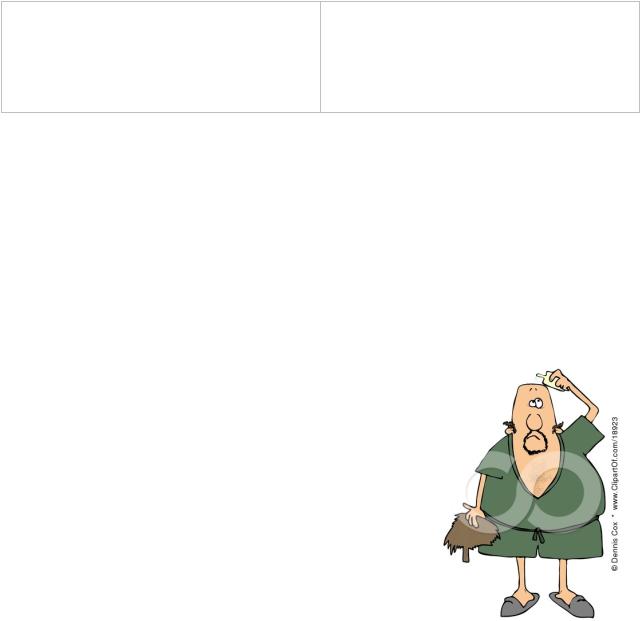
Mediterranean countries – країни |
depend on – залежативід() |
Середземномор’я |
plump person – пухка (повненька)особа |
flattish nose – приплюснутийніс |
features of character – рисихарактеру |
slanting eyes – розкосіочі |
double nature – подвійнаприрода |
get in touch with – контактуватиз)( |
too reticent – занадтостримані |
|
vice versa – навпаки |
People from different countries don’t look the same. For example, people from countries such as Denmark, Norway and Sweden are usually tall. They have fair hair, blue eyes and a pale complexion.
Most people in Mediterranean countries such as Italy, Spain and Greece are rather short. They have usually got dark wavy hair, brown eyes and light brown skin.
Most people from central and southern parts of Africa have got black curly hair and very dark skin. They have also got dark brown eyes, full lips and a wide, flattish nose.
The Chinese are quite short, with thick black hair and dark, slanting eyes. They have got a small nose and a yellowish complexion.
Those who live in hot countries wear light clothes like shorts, T-shirts and sandals. People from northern countries such as Canada, Russia and Finland wear too much clothes in winter – coats, hats, scarves, winter boots and other warm things.
During our life we get in touch with many people. We all know a proverb: “So many characters, so many people” and it is really true. Character is the
most important thing in a person which attracts or repulses other people. In general, character doesn’t depend on appearance. So, a very beautiful girl can be angry, nervous person who hates everybody and everything. But an ugly plump person can be really nice and friendly.
Each of us has good and bad features of character. We can say: “He is a bad man as he is rude or unreliable. And he is a good man because he is courageous, generous, kind-hearted.”
Some features have double nature. For example: modesty, stubbornness, persistency and others. Modest people are usually polite, but sometimes they tend to be too reticent.
A lot of things can change person’s character. If you are a kind man and you have grown up with rude, cruel people you can become the like of them or vice versa. Some people have a strong character and they can try to change themselves.
1.Comprehension questions.
1.Do people from different countries look the same?
2.People from Denmark have a yellowish complexion, don’t they?
3.What countries belong to Mediterranean ones? How do people living there look?
4.Are the Chinese short or tall?
5.What do people in hot countries wear?
6.Why do people from northern countries wear too much clothes in winter?
7.What features of character can be of double nature? Why?
8.What can change a person’s character?
2.Find the following words and word combinations in the text, translate them.
Виглядатиоднаково,доснизький,кучерятьвол,повгубисся,темнанішкіра,
носитилегкийодяг,приказка,приваблюдей,залежвідювзовати,нервоваішності людиненавидіти, , епривабллюдихарактеру,гаррисніи,добросерднийва , скром,зміність итихарактер,жор,статисхожимтокна,найзмінитисяагатися.

VOCABULARY PRACTICE
1. Find the topic-connected words among jumbled letters in the box.
2. Match the synonyms in two columns.
1. frank |
A. silly |
2. clever |
B. wavy |
3. stupid |
C. well-built |
4. curly |
D. intelligent |
5. slender |
E. honest |
6. sad |
F. awful |
7. ugly |
G. boring |
3. Match the antonyms in two columns. |
|
1. weak |
A. ugly |
2. pretty |
B. lazy |
3. false |
C. strong |
4. industrious |
D. active |
5. calm |
E. honest |
6. sad |
F. kind |
7. cruel |
G. cheerful |
4. Find the description to the adjective. |
|
1. honest |
A. doesn’t like to work or exercise, feels happy doing nothing |
2. funny |
B. positive person and positive about the future |
3. lazy |
C. thinks things will end badly, the opposite of optimistic |
4. jealous |
D. tells the truth |
5. optimistic |
E. doesn’t say much, prefers to listen |
6. quiet |
F. doesn’t like to talk about his achievements |
7. rude |
G. makes people laugh |
8. pessimistic |
H. wants what other people have, doesn’t like others to succeed |
9. modest |
I. shares what he has with other people |
10.generous |
J. not polite and offends people |
5. Read and translate the dialogues.
A.: My friend Rich is coming to town next week. Have you ever met him? B.: No, I haven’t.
A.: He’s kind of crazy, but a great guy.
B.: Yeah, why do you say so? What’s he like?
A.: He’s really hard-working, but very much a loner. He’s pretty talented and can do just about anything.
B.: Sounds interesting. Is he married? A.: No, he isn’t.
B.: What does he look like? Maybe my friend Alice would be interested in meeting him.
A.: He’s tall, slim and good looking. Your friend would find him attractive. What’s she like? B.: She’s outgoing and very athletic.
A.: Really? What sports does she like playing?
B.: She’s a great tennis player and also goes cycling a lot. A.: What does she look like?
B.: She’s kind of exotic looking. She’s got long dark hair and piercing black eyes. People think she is rather beautiful.
A.: Do you think she would like to meet Rich? B.: Sure! Why don’t we hook them up?
A.: Great idea!
*****
A.: I have a big favour to ask you! Can you meet my friend at the airport today evening? I don’t have time at all.
B.: Of course. No problem. How does she look like?
A.: She is an attractive blonde with green eyes. She is not tall. She likes wearing sporty clothes. She’ll have a bright orange suitcase.
B.: I hope there won’t be several blondes with orange suitcases...
A.: Don’t worry, I’m going to describe your appearance to her. B.: Tell her that I’m going to wear a brown jacket and black jeans.
A.: For her it will be enough to know that you are almost two meters tall. B.: You are right, it’s hard not to notice me.
6.Choose the correct words to complete these sentences.
1.He has such an innocent face. He couldn’t have done something so awful (adventurous / inexperienced / innocent). 2. The little boy’s __________ behaviour always gets him into trouble, but he is so cute even when he’s bad (mischievous / active / supportive). 3. She is a very
_________ person; she would never do anything stupid like that (frank / sensible / supportive).
4.The director of the company likes me, but she is giving someone else the job because she thinks that I am too _________ (generous / responsible / inexperienced). 5. He donated one million dollars to our city’s art museum. What a _________ gesture (frank / generous / responsible)! 6. I suppose there’s one advantage in growing up with _________ parents – you learn how to follow rules (active / patient / strict). 7. My grandmother is 74 years old, but she still maintains a _________ lifestyle: she walks a mile every day before breakfast and swims on the weekend (responsible / sensible / active). 8. When you are annoyed by a problem at work, it’s best to be _________ and look for a solution rather than get angry (innocent / patient / frank).
9.She wanted to go mountain climbing since she was a little girl. She always had an _________
nature (adventurous / mischievous / innocent).
7.Complete the following sentences.
1. Your sister is a real beauty … . 2. He was a handsome young man … . 3. The woman who opened the door was … . 4. My niece is such a nice little thing … . 5. The most remarkable thing about her face is … . 6. She looks the very picture of her mother: she has the same … . 7. The girl charmed everybody; she … . 8. Can you describe that man? – Sure, he … . 9. Is your friend as beautiful as she used to be? – It’s a pity, but she is not. She … . 10. She is 25, she looks … .
8. Translate into English.
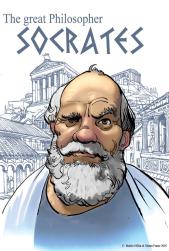
1. Їїматиневисзрос,п коговненькатемноволоса, у тасіро |
ока.Дочказовсімнанеї |
|
|
схожа.Вона |
– висока,стрункаблондзвеликимиблакитниминкаочи,те |
|
|
броватавія.Унеїмивеликий,алегар,прямийотнийністачудколірвийбличчя. |
|
|
|
2. Мійсусідбуввисокимхудорлявимчоловікомп’ятдесятироків.Й |
огообличчябулоне |
|
|
надтоприва.Уньогобуввеликийливимніс,маленькітемніочітатонкігуби.Алеколи |
|
|
|
вінговоривабоп сміхався,обличчодразужставалоприємнимже. 3. |
Цебулалітня |
||
жінроківза60,ізасивимвол,досогряднасямить,алевсеще |
красива. 4. |
Дівчинка |
|
чарівназїїкругобли,велччямсиочимакинійкирпатимминосиком. |
|
|
|
9. Read and translate the following text, do the exercises below.
Beauty
For the Greeks beauty was a virtue: a kind of excellence. If it occurred to the Greeks to distinguish between a person’s “inside” and “outside”, they still expected that inner beauty would match beauty of the other kind. The rich young Athenians who gathered around Socrates found it quite paradoxical that their hero was so intelligent, so brave, so honorable – and so ugly. One of Socrates’ main pedagogical acts was to be ugly – and teach those innocent, good-looking young people of how full of paradoxes life really was.
They might not believe Socrates’ lesson. Several thousand years later, we are more wary of the enchantments of beauty. We not only split off the “inside” (character, intellect) from the “outside” (appearance); but we are actually surprised when someone who is beautiful is also intelligent and talented.
A beautiful woman, we say in English. But a handsome man. “Handsome” is the masculine equivalent of a compliment which has accumulated certain demeaning overtones (принизливийпідтекст ), by being reserved for women only.
Comment upon underlined words.
Give synonyms to the adjective “beautiful”.
Give synonyms to the adjective “ugly”.
Are adjectives “beautiful” and “handsome” absolute synonyms? What is the difference between them?
What is more significant for you, inside or outside beauty? Why?
Describe appearance that you consider ideal.
HUMOUR TIME
Do you feel like a glass of orange juice? Why? Do I look like one?
*****
A man and a little boy entered a barbershop together. After the man received the full treatment – shave, shampoo, manicure, haircut, etc. – he placed the boy in the chair.
“I’m going to buy a green tie to wear for the parade,” he said. “I’ll be back in a few minutes.” When the boy’s haircut was completed and the man still hadn’t returned, the barber said,
“Looks like your daddy has forgotten all about you.”
“That wasn’t my daddy,” said the boy. “He just walked up, took me by the hand and said, Come on, son, we’re going to get a free haircut!”
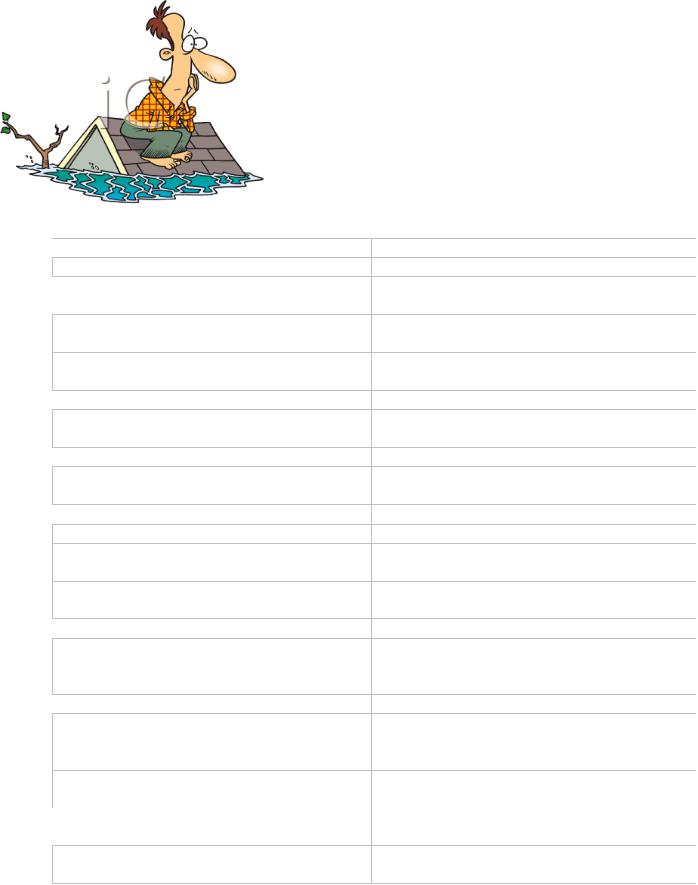
LESSON 3
House. Flat
My house is my castle.
East or West, home is best.
Home is the girl's prison and the woman's workhouse.
Home is any four walls that enclose the right person.
Love begins by taking care of the closest ones - the ones at
home.
The strength of a nation derives from the integrity of the home.
TOPICAL VOCABULARY  1. General
1. General
building / to build
 dwelling / flat / block of flats / house / home district / residential area / suburb
dwelling / flat / block of flats / house / home district / residential area / suburb
story (floor) / two-storied building / to live(ed) on the ground floor (Br.)
 to move(ed) into (out) / housewarming party to let (let; let) a house / to rent(ed) a house / real estate agency / tenant
to move(ed) into (out) / housewarming party to let (let; let) a house / to rent(ed) a house / real estate agency / tenant
 2. Types of Dwelling
2. Types of Dwelling
hut / country house (weekend house) / skyscraper / palace / castle / barracks
 3. House parts
3. House parts
roof / attic / chimney / stairs / porch / basement ceiling / floor / wall / window / window sill / Venetian blind
front door (back door) / door lock / door-bell spyhole
 4. Premises and Outhouse
4. Premises and Outhouse
yard / garden / kitchen garden / lawn / flowerbed / fence / path / pond / fountain / summer house / green-house / garage / shed (barn)
 5. Repairing a House
5. Repairing a House
construction materials: wood / metal / plastic / brick / concrete / glass / marble / stone
to paint(ed) / painted / wallpaper / linoleum / whitewash(ed)
 6. House Fittings and Housekeeping
6. House Fittings and Housekeeping
house fittings: modern conveniences central heating / water supply / lift (Am: elevator) /
1Загальна. лексика |
|
|
|
|
спорудабудувати/ |
|
|
|
|
житлоквартира/ багатоквартирний/ |
|
|||
будинок/ |
/ дімоселя( ) |
|
||
район / житлмісцевістьо/ ваколиця, |
|
|
||
передмістя |
|
|
|
|
двоповерхова/ будівляжити/ на |
|
|
||
першомуповерсі |
|
|
|
|
заїхативиїхати( )входини/ |
|
|
|
|
здаватиорендубудинокорендувати/ |
|
|
||
будинок / агезнерухтствомості |
/ орендар |
|||
2Типижитла. |
|
|
|
|
хатинадача/ хмарочос/ палац/ замок/ / |
|
|
||
казарма |
|
|
|
|
3Складові. будинку |
|
|
|
|
дах / горище / димар / сходиганок/ |
/ підвал |
|||
стеляпідлога/ стін/ вікно/ |
|
/ підвіконня / |
||
жалюзі |
|
|
|
|
вхідні двері (запаснийвихід) |
/замоку |
|||
дверях/ |
дзвінок / вічко |
|
||
4Прилегла. |
прибудинковазабудова |
|
||
двірсад/ город/ газон/ клумба/ паркан/ / |
|
|
||
стежкаставок/ / |
фонтанальтанка/ теплиця/ |
|
||
/гарсарай/ ж |
|
|
|
|
5Ремонт. будинку |
|
|
|
|
будівельніматеріали: |
|
дерм/ евотал |
/ |
|
пластикцегла/ бетон/ / /ло |
|
мармур / |
||
камінь |
|
|
|
|
фарбувпофарбований/ шпалери/ ти |
|
/ |
||
лінолеумпо/ б( ) итика |
|
|
|
|
6Оснащення. квартирита |
ведення |
|||
домашньогогосподарства |
|
|
||
оснащенняквартири: |
|
сучаснізручності |
/ |
|
центральнеопалення/ |
|
водопостачанняліфт/ |
||
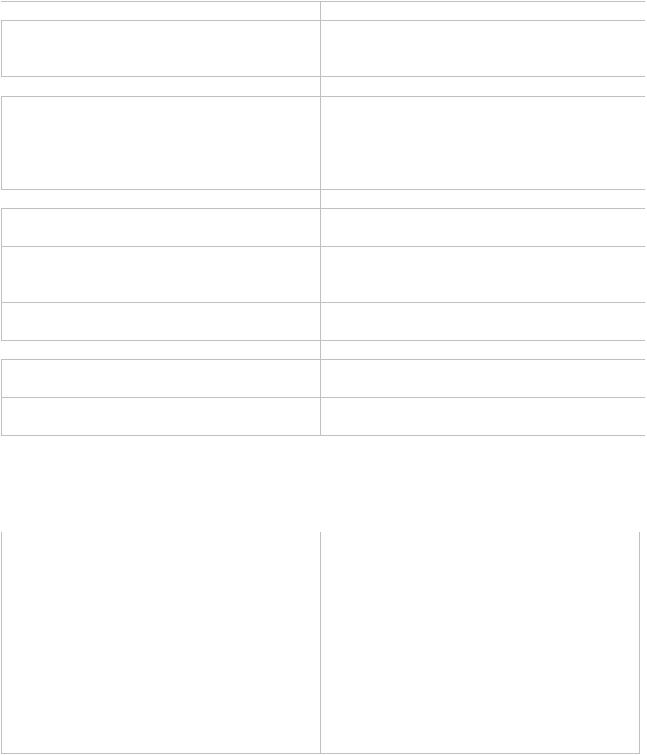
 radiator / fireplace
radiator / fireplace
to keep (kept; kept) house / to sweep (swept; swept) / to wipe(ed) / to polish(ed) / to air(ed) / to clean(ed) the garbage
 7. Household appliances
7. Household appliances
iron / washing machine / vacuum cleaner / dishwasher / TV set with a remote control / hair drier / microwave oven / electric kettle / coffee maker / mixer / refrigerator
 8. Rooms and Interiors
8. Rooms and Interiors
hall: rack / mirror / chest of draws / rug
living room (lounge): furniture / sofa / cushion / arm-chair / coffee table / carpet / curtain / lamp / standard lamp
bedroom: wardrobe / double bed / blanket / coverlet / mattress / pillow / bedside table
 dining room / study / nursery / utility room kitchen: sink / taps / cooker hood / coоker / oven / cupboards
dining room / study / nursery / utility room kitchen: sink / taps / cooker hood / coоker / oven / cupboards
bathroom: bath tub / shower cabin / washbasin / toilet
INTRODUCTORY TEXT
/батарея |
/ камін |
|
|
|
|
|
вестидомашнєгосподарсзаміта/ / тиво |
|
|
|
|||
витирмити()н/атидоблискурати/ |
|
|
|
|
||
провітрюватиприбрати/ сміття |
|
|
|
|
||
7.Побутовіприлади |
|
|
|
|
||
праскапральна/ м пилосос/шина/ |
|
|
|
|
||
посудомийнамашинателевізор/ |
|
|
|
|
||
дистанційкерувафен/ / нимням |
|
|
|
|
||
мікрохвильовапіч |
|
/електричнийчайник/ |
|
|||
кавоваркаміксер/ холодильник/ |
|
|
|
|||
8.Кімтаінтер’єрата |
|
|
|
|
||
передпокій:вішалка |
|
/дзеркалокомод/ |
/ |
|||
килимок |
|
|
|
|
|
|
вітальня: |
меблі/ |
диванподушка/ кр/ |
|
ісло/ |
||
журнастольнийик |
|
/килим |
/штора/ |
лампа/ |
||
торшер |
|
|
|
|
|
|
спальня: шафаподвійне/ ліжкоковдра/ / |
|
|
||||
покривало /матрацподушка/ / |
тумбочка |
|||||
їдальнякабінет/ / |
|
дитяча / комірчина |
|
|||
кухня: |
мийкакрани/ витяжк/ |
|
аплита/ / |
|
||
духовашафабуфет/ |
|
(шафки) |
|
|
||
ванна: |
ванна (резервуар)душова/ кабіна |
|
/ |
|||
умивальниктуалет/ |
|
|
|
|
||
From the History of Human Dwellings
Notes to the text:
for industrial purposes – упромисловихцілях
public and scientific institutions – громадські йнаустановикові
primitive men (ancient people) – первісні
(старо)людиавні
stormy weather – негода
to look for protection – шукатизахисту to settle in caves – селитисявпечерах
primitive stone structures – примітивні кам’яніспоруди
to feel a need – відчуватипотребу
within the town walls – умежахмістіньких shop opening on the street – магазин,що відкриваєтьсянавулицю
to sell goods – продаватитовари
thick walls and narrow windows – товсті стінитавузьківікна
to stand up to enemy attack – протистояти ворожатацій
dried in the sun – висушенінасонці hearth – вогнище
through the hole in the roof – черезотвір даху
Most of the time people spend within the walls of some building. Houses are built for dwelling; large buildings are constructed for industrial purposes; theatres, museums, public and scientific institutions are built for cultural activities of the people. The purposes of modem buildings differ widely, but all of them originate from the efforts of primitive men to protect themselves from stormy weather, wild animals and human enemies.
In prehistoric times men looked for protection under the branches of trees; others settled in caves, dwelling places that storm and cold could not destroy. On the walls of their caves ancient people painted pictures. Such decorated caves are found in Europe, Asia and Africa.
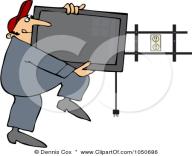
When man began to build a home for himself, caves were imitated in stone structures; trees were taken as a model for huts built of branches. Such primitive stone structures and huts are the earliest types of human dwellings.
In the days of early civilization, once men had learnt how to build simple houses for their families, they began to feel a need to have a number of different kinds of houses in one place. At first the difference was mainly in size – the leader had a larger hut or tent than the rest of the people. Much later, when men began to build towns, there grew up a difference between town houses and country houses. The streets in towns were very narrow and there was not much place for building within the town walls, and therefore houses had to be built higher than they were in the country. A typical town house consisted of a shop opening on the street where the man did his work or sold his goods, with a kitchen behind and a bedroom above.
The rich people in the country built huge castles with thick walls and narrow windows. These castles were built not only as dwellings, but also to stand up to enemy attack. The earliest houses of which anything is known are those of ancient Egypt. They were built of bricks dried in the sun. Some of them were built around a courtyard or garden with rooms opening into it.
The earliest houses in Britain were round, built of wood. In the centre of the house there was the hearth; light came in through the hole in the roof above it and through the door because there were no windows.
1.Comprehension questions.
1.Where did primitive people look for protection?
2.What are the earliest types of human dwellings?
3.Why were the houses in town higher than in the country?
4.What were the houses in ancient Egypt built of?
5.How did the light come into early English houses?
2.Find the following words and word combinations in the text, translate them.
Проводитичас, культурдіяль,мета,сучаснабудівляість,різнитисярозмірами,
поховід(),намити,захищгання,дикітв,удоістосяриничаси,учасиранньоїичі |
|
цив,гідеревлізації,кимісцепроживання,руйнувати,імітувати,кам |
’яніспо,братуди |
зазразок,намет,вузьківулицітиповий, міськвеличезнийбуд, инокзамок,багаті, |
|
стародавнійЄгипет,побудованийізцегли,бутипобудованимнавколоподвір |
’я,світло. |
VOCABUALARY PRACTICE
1. Use the right word from those given in brackets.
1.There is a ... in my study room. (table, kitchen, desk)
2.Is there any ... in that room? (cooker, furniture, fridge)
3.There is no ... in the house, it is cold in winter. (mirror, fireplace, telephone)
4.Is there ... in your kitchen? (hot water, garage, computer)
5.There is no balcony in my ... . (garden, room, bathroom)
6.There are two large ... in the sitting room. (TV sets, wardrobes, windows)
7.Is there a ... in your sitting room? (bath, desk, TV set)
8.We have a table and some ... in the dining room. (chairs, bookshelves, beds)
9.Have you got any bookshelves in your ...? (kitchen, garden, study room)
10.They have no ... on Sunday. (visitors, teachers, students)
11.They have two ... near the fireplace. (beds, armchairs, tables)
12. ... the sofa he has a bookcase. (under, to the right of, over)
2. Change the following sentences into interrogative and negative.
1. There is a round table in the middle of the room. 2. There are many flowers on the windows. 3. It is a modern two-storied cottage. 4. There is a study in our flat. 5. I have a room of my own. 6. There are many fruit-trees in our garden. 7. We must go home now. 8. Pete lives on the third floor. 9. The furniture in my room is modern and quite new. 10. On the right you can see a standard-lamp. 11. There is a sofa in the corner of the room. 12. There are many English books in the bookcase. 13. The floor is covered with a beautiful thick carpet. 14. There are all modem conveniences in my aunt's flat. 15. The clock on the wall is five minutes slow.
3.Complete the following sentences.
1.In front of the house ... . 2. I live in a flat. We have three rooms. They are .... 3. In the middle of the room .... 4. On the walls .... 5. On the left .... 6. To the right of the TV-set ... . 7. Next to the sofa ... . 8. Next to the door ... . 9. In the kitchen ....10. In the bathroom ... . 11. In the study
.... 12. Next to the ... there is ... . 13. There is ... between .... and .... 14. To the right of the ... .
15.In the sitting-room ... . 16. Opposite the fireplace .... 17. Under the window ... . 18. In the chest of drawers ... . 19. In the sideboard ... . 20. At the back of the house ... .
4.Match the common house objects with their description.
a. TV-set |
1. |
Where you hang your clothes |
b. desk |
2. |
More than one person can sit on this, comfortably, perhaps to watch TV |
c. mirror |
3. |
Where you keep milk, butter and other foods cold |
d. carpet |
4. |
Where you keep paper and pens, and write letters |
e.refrigerator 5. Where you keep plates, cups or almost anything
f.wardrobe 6. Where you bake cakes, biscuits, etc.
g. clock |
7. |
When you look at this flat piece of glass, you can see yourself reflected in it |
h. sofa |
8. |
A thing that shows you the time |
i. oven |
9. |
A thick flat piece of cloth which you use to cover the floors and stairs |
j. cupboard |
10. Usually you switch it on and watch or listen to different programmes |
|
5. Read and translate the dialogues.
Jack: Hello, Pete!
Pete: Nice to see you. Come in, please. Jack: Oh, this is a wonderful new flat! Pete: Yes, it is, and so close to the centre.
Jack: How many rooms are there in your fiat?
Pete: Come and see... This is the kitchen, the bathroom is on the right. Jack: Oh, the kitchen is so large! I like big kitchens.
Pete: And here is the dining room. We have little furniture here. We want to have some armchairs, a sofa and some more things.
Jack: Are you on the phone? (У вас є телефон?)
Pete: It's a pity, we aren't yet... Let me introduce you to my wife.
Pete's wife: How do you dо. I hope you'll enjoy our housewarming party.
*****
Client: Good morning, Sir. I am going to visit the flat for rent, how much is it? Agent: It’s 300 euros charges included.
Client: Do you want a deposit?
Agent: Yes, I want it, a 500 euros deposit. Client: When is the rent to be paid?
Agent: It must be paid the 1st of each month in advance. Client: Is it a furnished flat?
Agent: Yes, it is. It includes all necessary facilities.
6. Translate the sentences into English.
